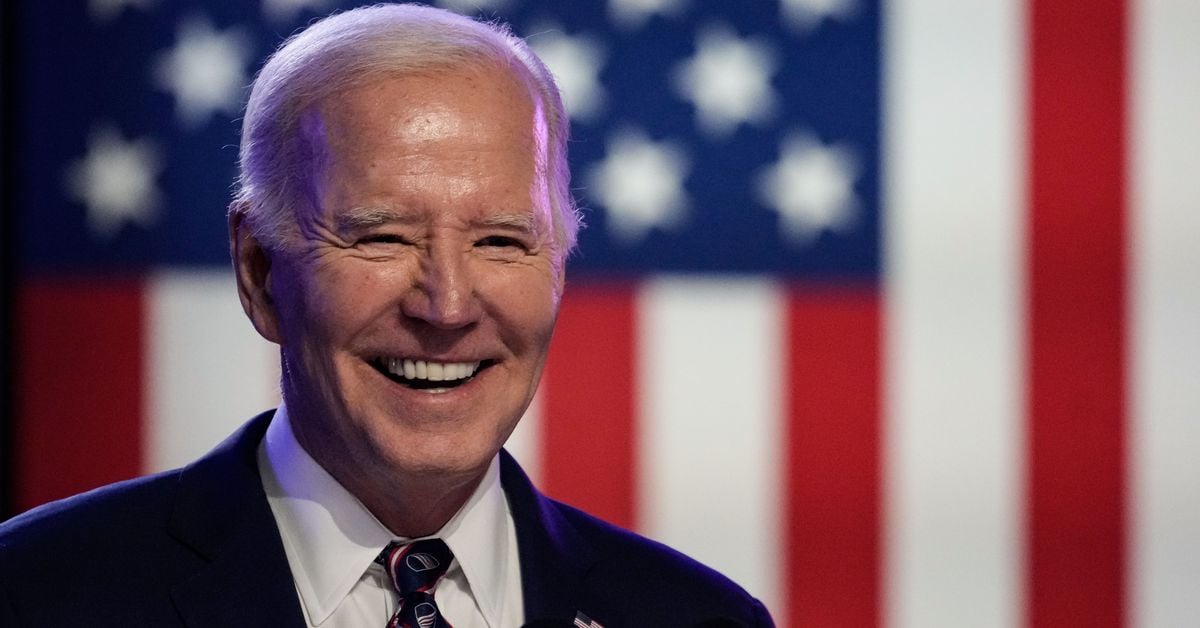Donald Trump would be on track to win a historic landslide in November — if so many US voters didn’t find him personally repugnant.
Roughly 53 percent of Americans have an unfavorable opinion of the former president. And yet, when asked about Trump’s ability to handle key issues — or the impact of his policies — voters routinely give the Republican candidate higher marks than President Biden.
In a YouGov survey released this month, Trump boasted an advantage over Biden on 10 of the 15 issues polled. On the three issues that voters routinely name as top priorities — the economy, immigration, and inflation — respondents said that Trump would do a better job by double-digit margins.
Meanwhile, in a recent New York Times/Siena College poll, 40 percent of voters said that Trump’s policies had helped them personally, while just 18 percent said the same of Biden. If Americans could elect a normal human being with Trump’s reputation for being “tough” on immigration and good at economics, they would almost certainly do so.
Biden is fortunate that voters do not have that option. But to erase Trump’s small but stubborn lead in the polls, the president needs to erode his GOP rival’s advantage on the issues.



The economy is a really easy target for someone to point to to claim a president is doing well or poorly. Really whenever someone makes a claim about “the economy” in general without specifying which metrics they’re talking about and why those are relevant, they’re full of it and just using it to make the list of pros or cons longer.
I’m still in my 20s and I’m more or less a layman as far as economics go. Ever since I started paying attention to politics, the economy has simultaneously been doing extremely well and poorly depending on who you ask, and they can use a whole mess of different metrics to explain why they’re right. Meanwhile the only thing I really notice is the price of gas, groceries, or rent.
It seems that we live in two different economies: a good one for people that support the president, and a bad one for those that don’t.
I think it’s a whole lot simpler than that.
Trumps presidency was 80% pre-covid, and entirely pre-inflation. Bidens was all covid, all inflation that saw the average person lose 20-30% of their pay.
This is how stupid and simplistic the average voter is, and it’s why conservative propaganda works so well. Their feelings don’t care about facts.
And have pretty much always been that way, at least in semi recent memory, and the GOP have used this fact constantly by taking credit for their Dem predecessors’ economic policies and by the time the negative impact of their policies start to be seen, the Dems are back in power and the GOP blames them for the hardship
The average voter does not and apparently will never understand that economic policy takes years to fully see and feel the impact
I’ve been working for three decades. In that time, we’ve had some legitimate financial crises such as 9/11, 2008, and COVID.
Those aside, what I’ve mainly witnessed is people who fail in business or lose their job via incompetence never say, “Man, I should’ve hired a legitimate bookkeeper and stopped using my corporate card to cut rails in the strip club bathroom,” or, “Man, maybe I should’ve shown up to work more than twice a month and maybe I shouldn’t have slapped the receptionist on the ass when I did show up.”
No. It’s always, “My business failed and I lost my job because of the economy”
“The economy” is some great catch all bogeyman scapegoat that has very little basis in meaning when used in daily conversation, especially as it pertains to personal finance.
We can talk about corporatocracies or consolidation of wealth or two tier justice because those things are real and should be addressed, but they are rarely what people are referring to when they blame “the economy.”